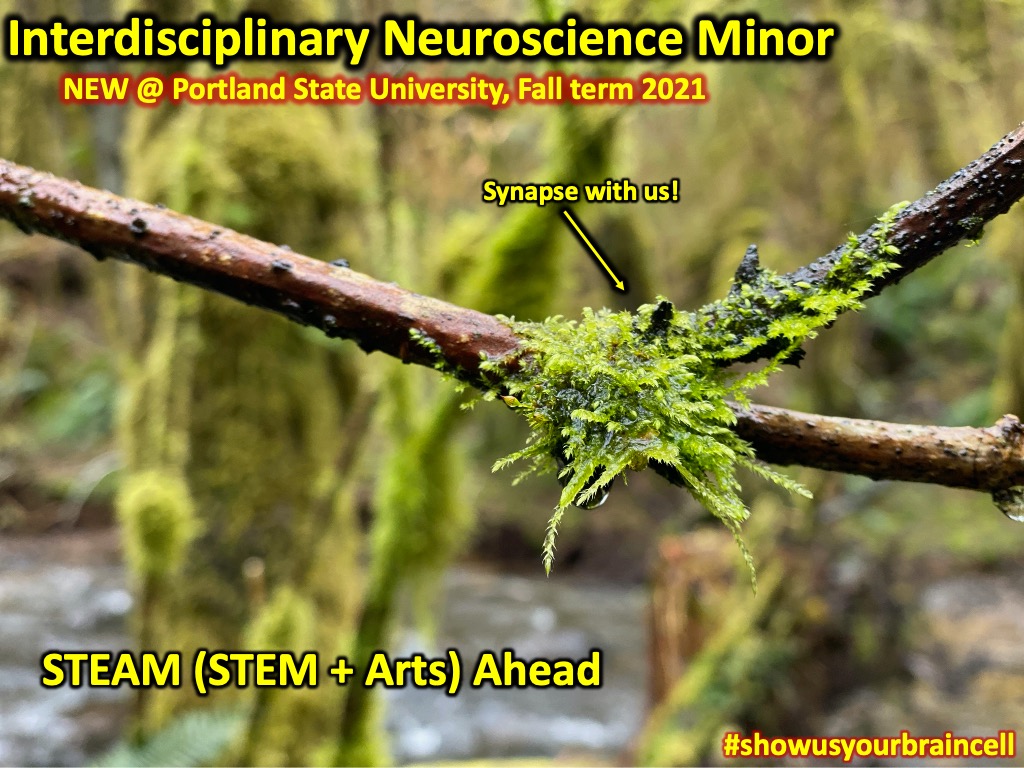By Alisha Steigerwald, 2020-21 Neuroscience Club President, Portland State University
One thing is certain – neuroscience rocks!
That is definitely how students at Portland State University feel.
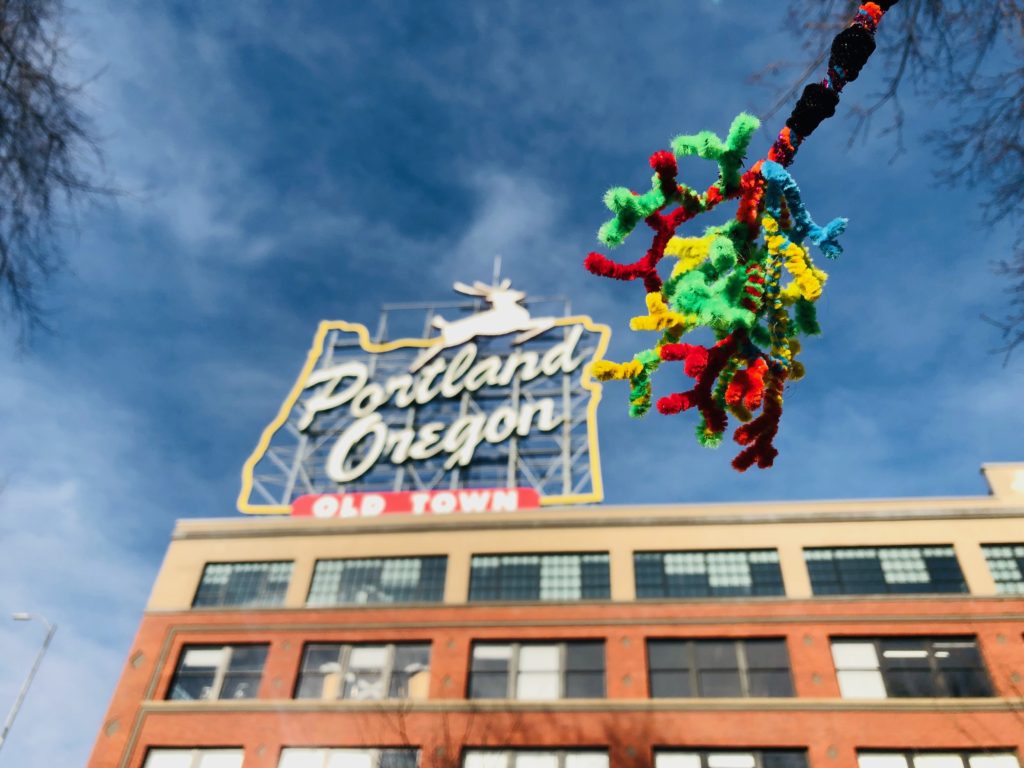
LEARN MORE: Interdisciplinary Neuroscience Minor at Portland State University
PSU students have a long-standing passion for brains and have sought many opportunities to enrich their neuroscience education as undergraduates. They’ve studied the intricacies of both brain and behavior in psychology and biology courses, worked in labs at OHSU, participated in the NIH BUILD EXITO and McNair scholars programs, presented research at the Society for Neuroscience, brought learning outside college classrooms via the active PSU Neuroscience Club and let knowledge serve our Northwest community through interdisciplinary neuroscience outreach as volunteers with the non-profit NW Noggin.
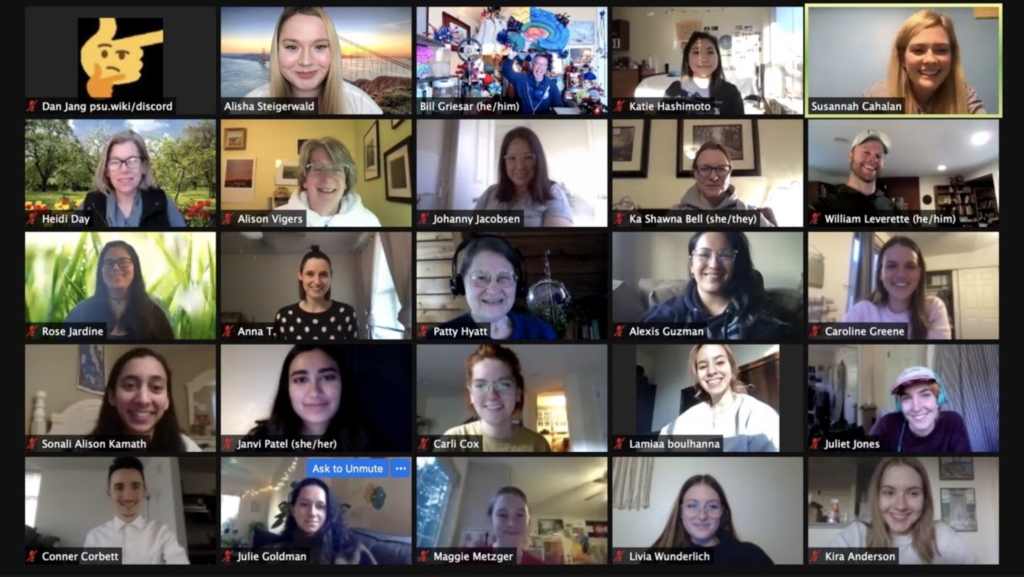
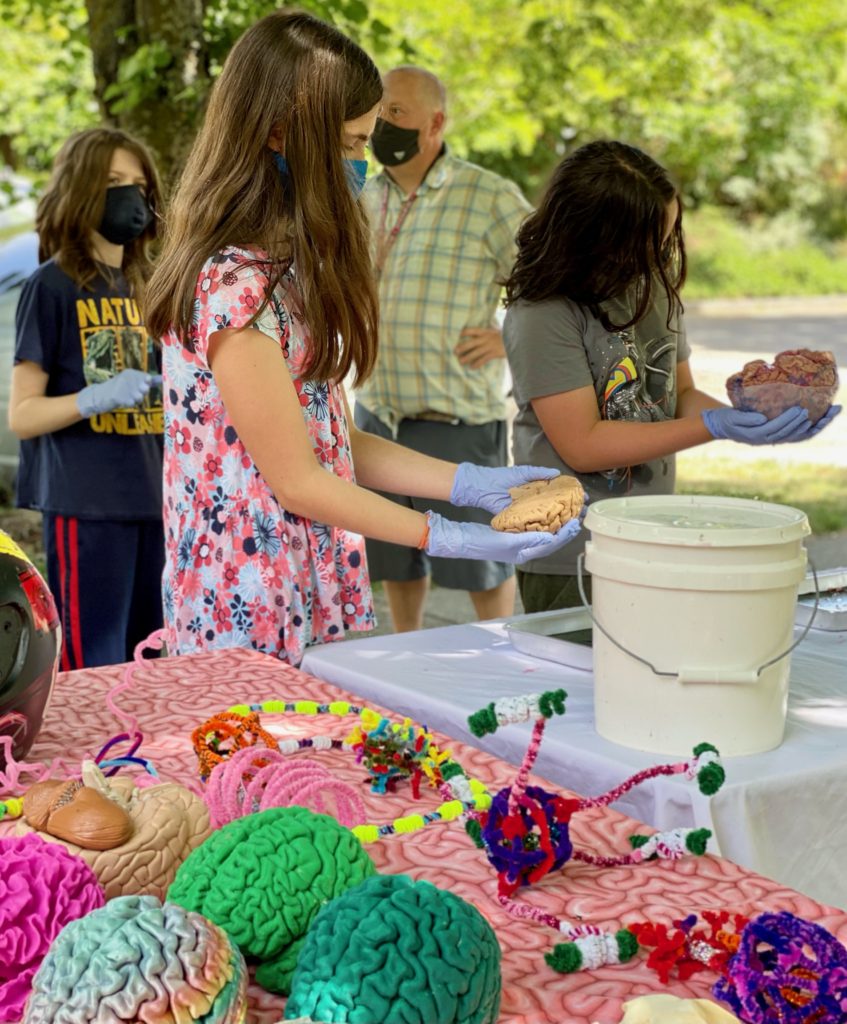
LEARN MORE: NW Noggin outreach @ Portland State University
LEARN MORE: Noggin Bloggin
However, despite all the excitement for neuroscience on the PSU campus, one thing was missing – a formalized neuroscience track of study. Although PSU offers many neuroscience classes, we lacked an official neuroscience major or minor. Without an organized track of study, students’ neuroscience education hasn’t been formally supported by our institution.
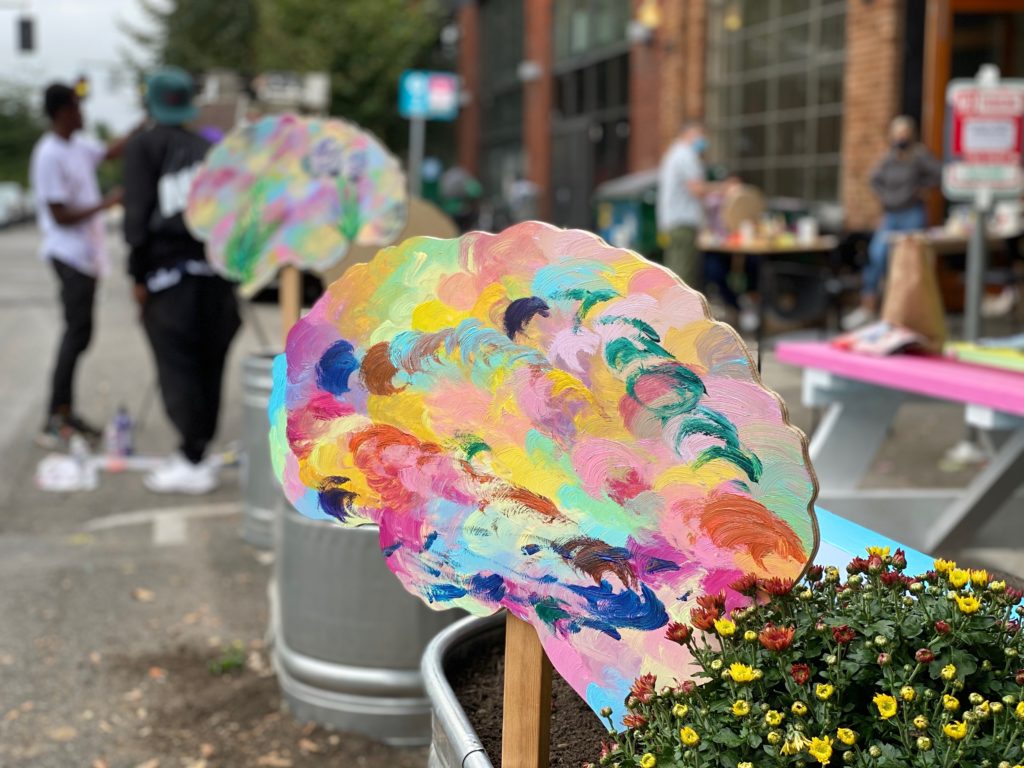
To address this problem I, alongside my peer and past Neuroscience Club President Louis Sumrall, spearheaded a movement to create an Interdisciplinary Neuroscience minor at PSU. This included researching neuroscience programs at other institutions, collecting data from a variety of classes on student interest in neuroscience, and cataloging the existing neuroscience classes offered at PSU in order to put together a proposed curriculum.
Percentage of students in different Neuroscience classes who answered “most definitely or most likely” to whether they would pursue a neuroscience minor if it were offered at PSU (2019).
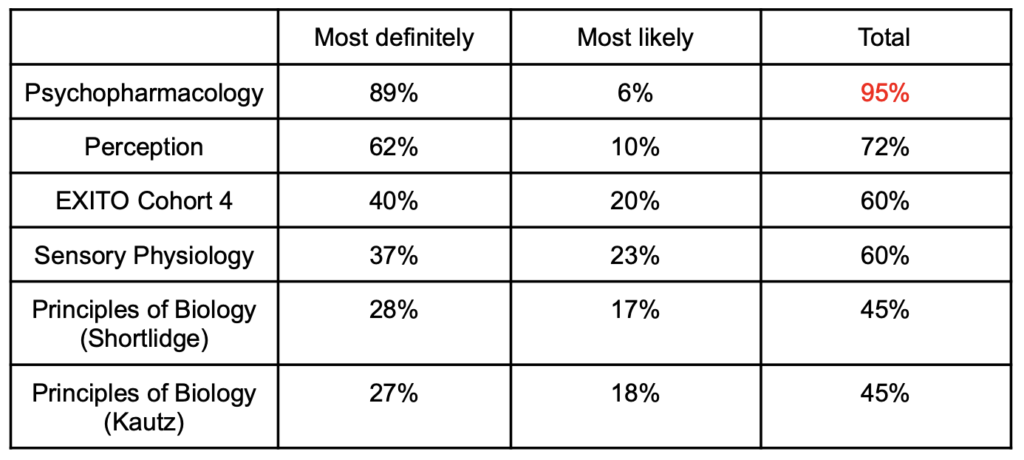
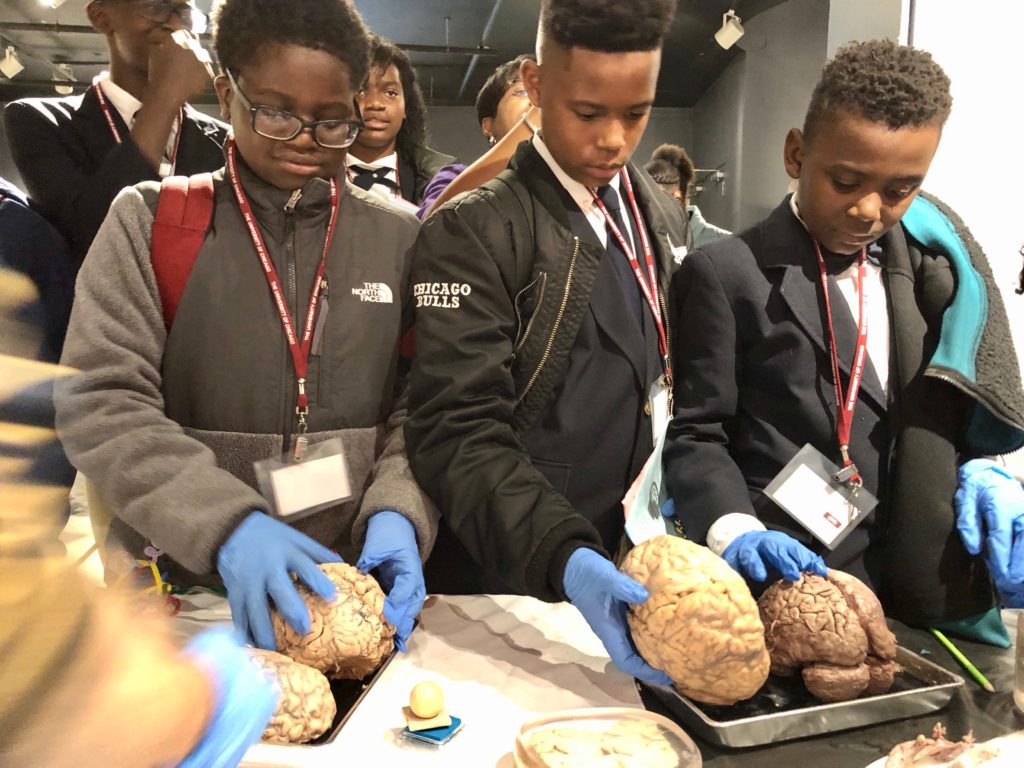
LEARN MORE: The Beauty of the Brain, by Louis Sumrall
These results were presented to the Dean of the College of Liberal Arts & Sciences and multiple department chairs in order to showcase the importance of an interdisciplinary education in neuroscience. This presentation was very well-received and in response, faculty members and administrators worked hard to create and submit a formal proposal for the new minor.
Interdisciplinary neuroscience minor: Fall 2021!
This week, on June 14th, the Interdisciplinary Neuroscience minor was officially approved for launch in the fall of 2021! We expect that over 500 students will pursue the minor during the next 5 years!
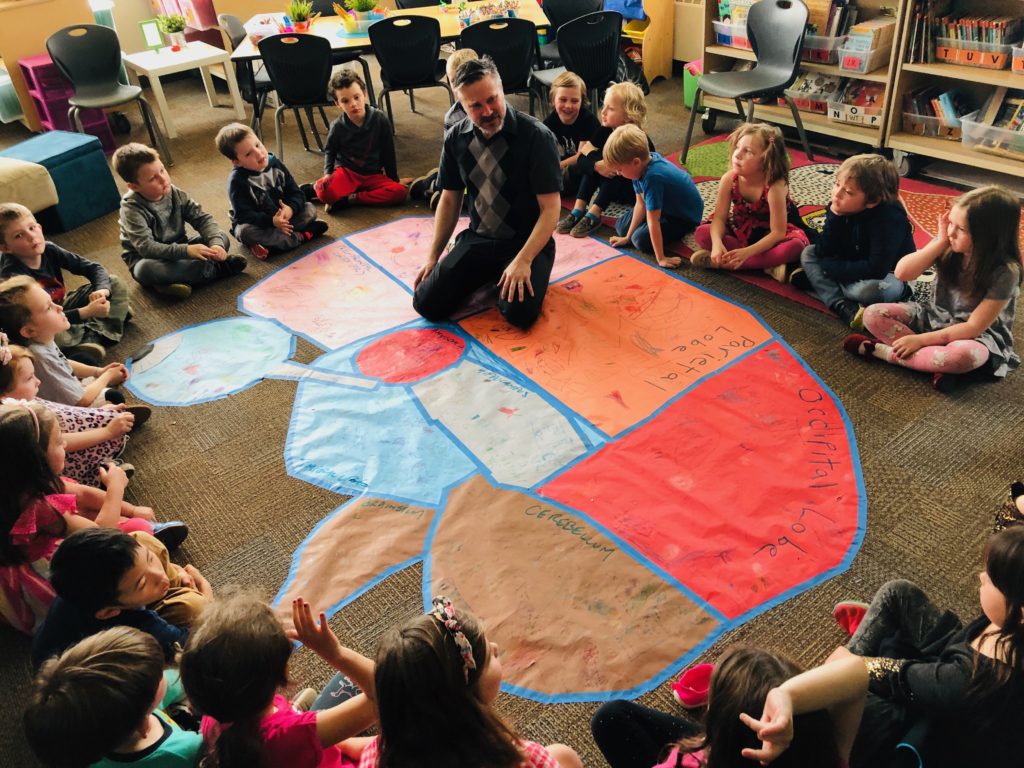
The interdisciplinary Neuroscience minor will be one of the first neuroscience programs offered at a public institution in Oregon.
We aim to increase accessibility of neuroscience for students who might otherwise not encounter the field, hopefully expanding diversity and reducing barriers to education and careers. PSU serves many non-traditional students, international students, LGBTQ students, and students not currently over-represented in universities. The interdisciplinary nature of the minor also increases accessibility by engaging students from a variety of disciplines, rather than serving those with biology backgrounds alone. And it exposes those without much experience in biology to the structure and function of neurons, glia and brains! There are many students who may not have felt they were capable of learning or pursuing an education in neuroscience who will now have an accessible gateway to this field. This includes Speech and Hearing Sciences, Linguistics, Philosophy, Physics, Art and Public Health students.
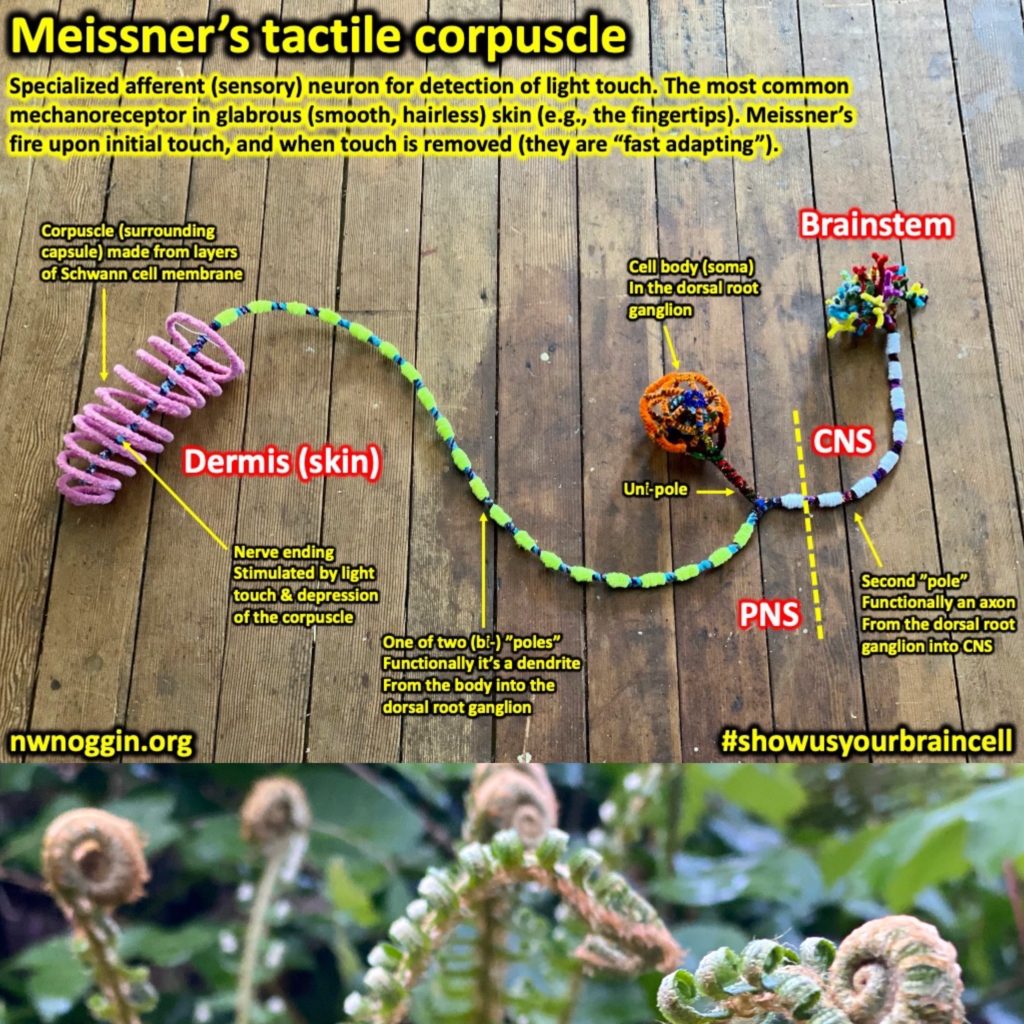
The interdisciplinary nature of this minor will also strengthen ties between different departments at PSU, allowing for greater collaboration and innovation. In the real world, subjects are not divided into these discrete categories of just “biology” or just “psychology.” Rather, these subjects mix and knowledge in one realm informs and strengthens knowledge in another. Cross training in multiple subjects through an interdisciplinary approach will thus equip students to be better critical thinkers and creative problem solvers. The exchange of ideas by people with diverse backgrounds is what drives scientific innovation, and that is what our students will be prepared to do.
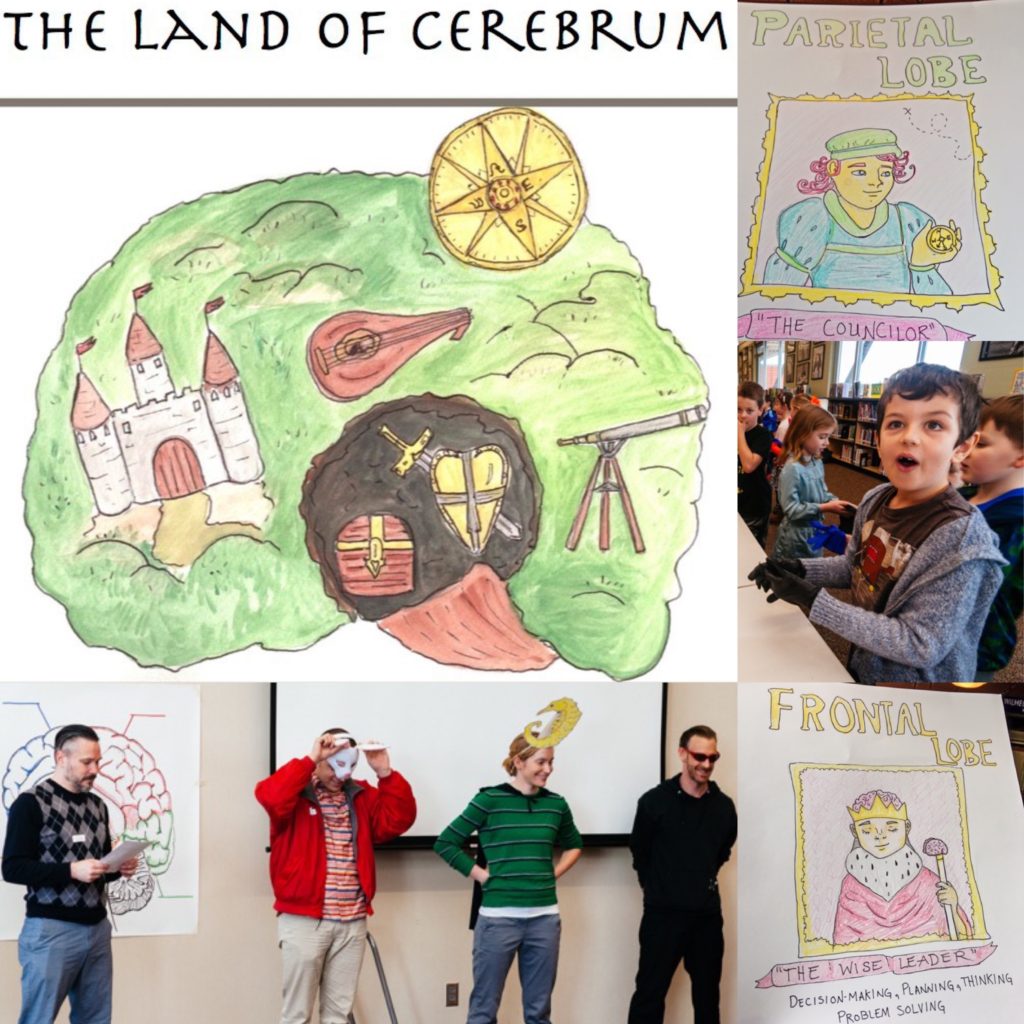
“Interdisciplinary work has the potential to help us as educators reimagine how we can teach and how our students might learn. Working across disciplines is one of the best ways we have to help our students see and forge the unique connections that spur true innovation. From my experience as an artist who has been working in neuroscience education, seeing science through the lens of art allows us to approach often complex subjects in a way that centers discovery and the personal relevance of the subject matter, rather than rote learning. Many concepts don’t boil down to one right answer, but can accommodate a diverse range of responses. Every time we teach we end up gaining insights that we don’t expect. This is as beneficial to us as teachers as it is to our students. If taken as truly collaborative this kind of interdisciplinary approach can provide new perspectives for both students and educators, and at its best can lead to deeper understanding, and even paradigm shifts that neither discipline could achieve on its own.”
– Jeff Leake, Artist, PSU Psychology/University Studies; Arts Coordinator & Co-Founder of NW Noggin
LEARN MORE: What will your students remember in five years?
LEARN MORE: The neuroscience of teaching art & science
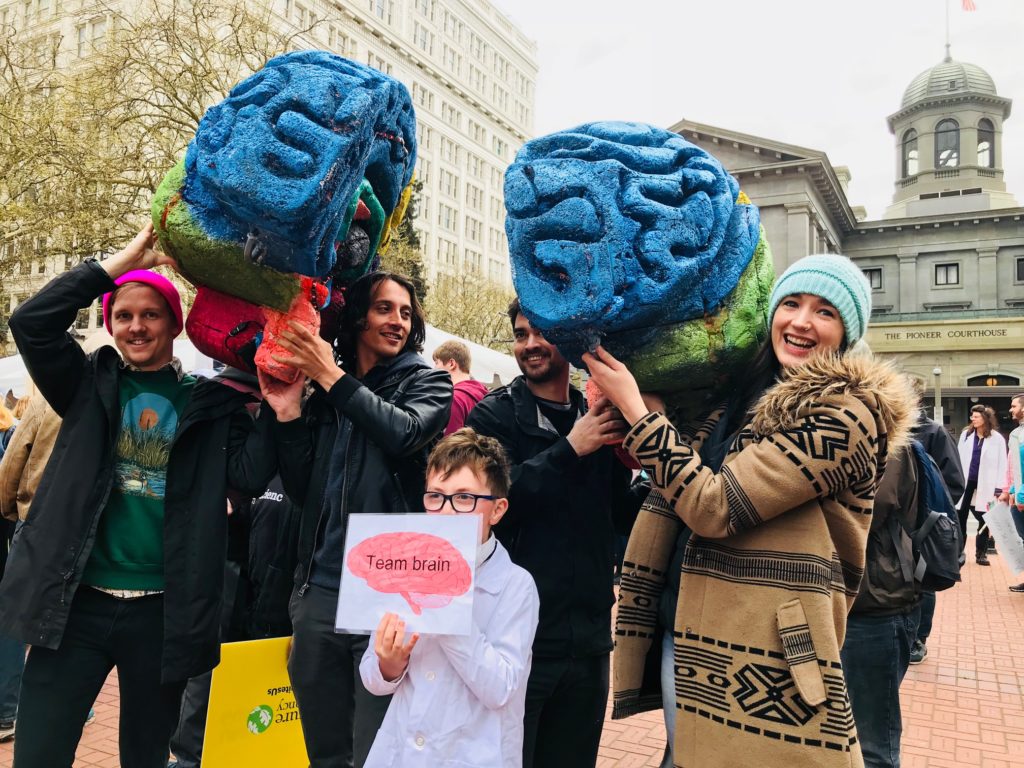
Neuroscience is also a rapidly expanding field, and the Pacific Northwest is a powerhouse for neuroscience innovation. This makes PSU the perfect place to prepare students to be ready to continue unraveling the mysteries of the brain. The interdisciplinary nature of this minor is also imperative. This minor increases collaboration within PSU through the intersection of biology, psychology, and an array of other departments. In addition, this minor will also serve to increase collaboration with OHSU, undergraduate research programs, and local nonprofits.
So how do you create a minor in neuroscience?
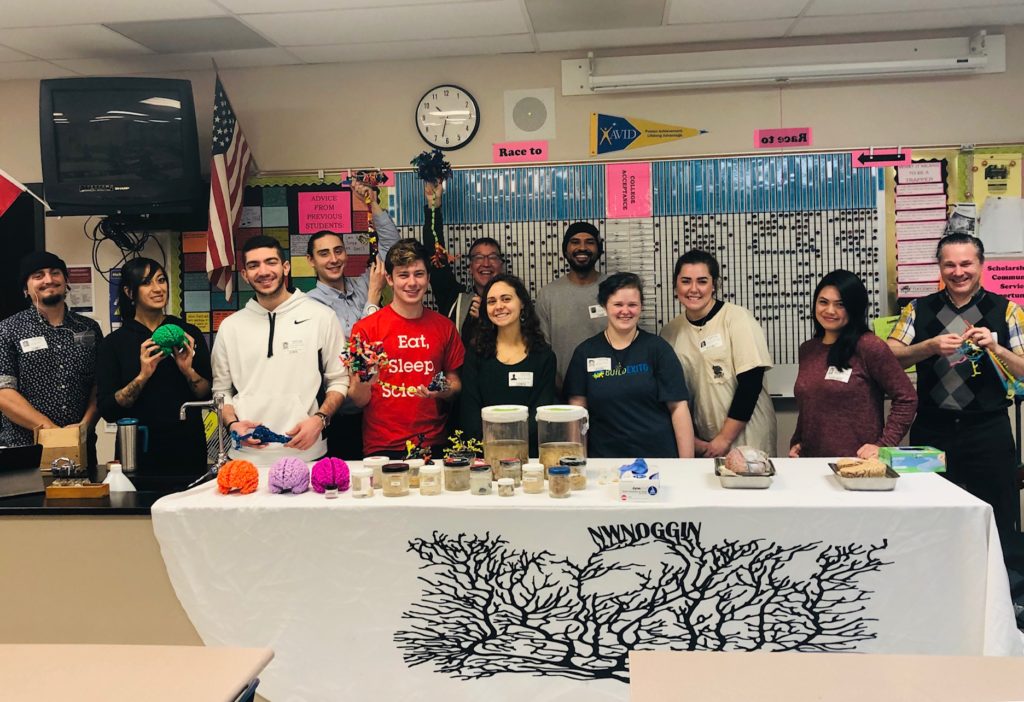
Louis Sumrall and I sought to solve this problem with data.
Our initiative began in the spring of 2019 when we devised a plan to bring attention to the need for a formalized neuroscience track of study. We conducted research into the current number and demographics of institutions currently offering neuroscience-focused majors. The results spoke for themselves, with 9/10 of our nation’s top private universities and 8/10 of the top public universities offering neuroscience-focused majors. In spring of 2019, the only institution in the Portland area that offered a neuroscience major was Reed College**, and the institutions offering minors were Lewis & Clark College and the University of Portland. Since PSU is public, we serve a different demographic than the local private institutions that were then offering formal majors or minors in this field.
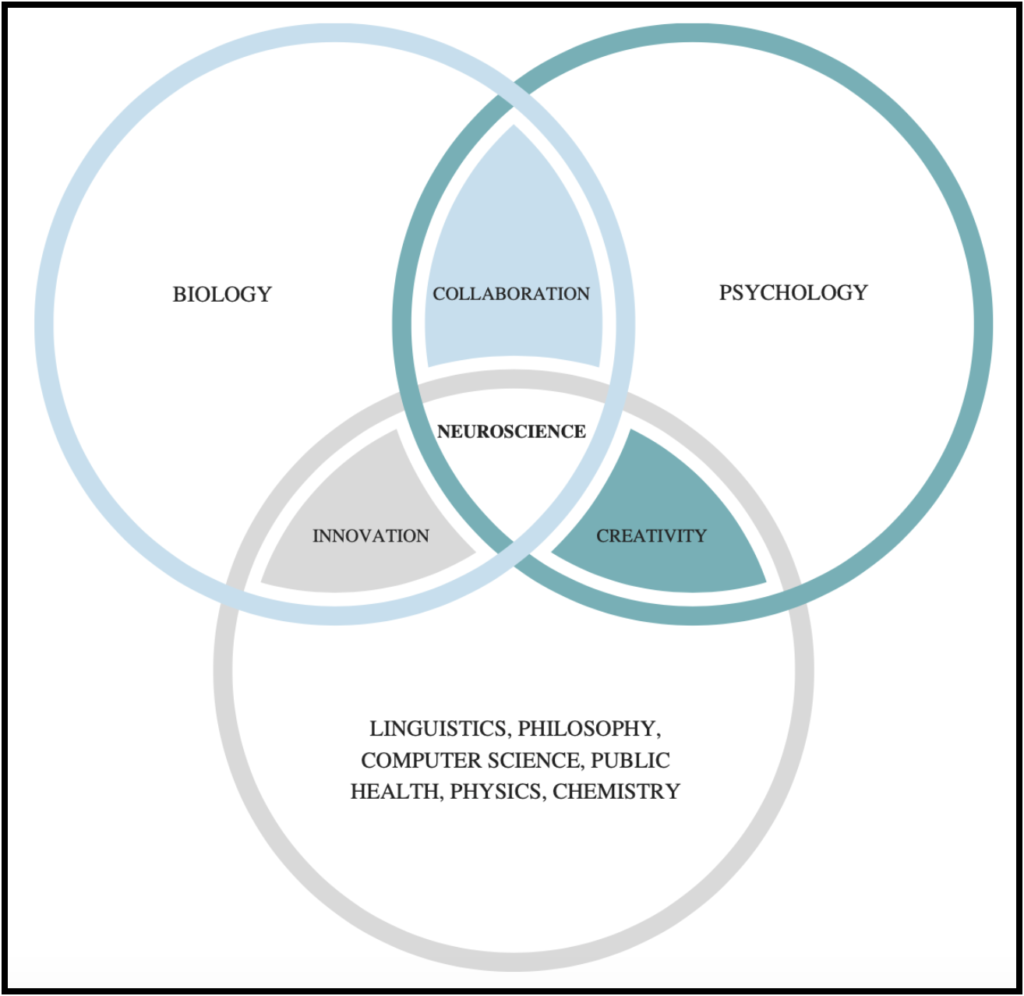
** The University of Oregon also offers a Neuroscience major, and some exceptional interdisciplinary opportunities, at the extraordinary Institute of Neuroscience (ION) in Eugene. LEARN MORE: Ducks, Fish, Art & Brains.
This experience taught me a lot about myself, neuroscience outreach, and the value PSU places on the voices of their students.
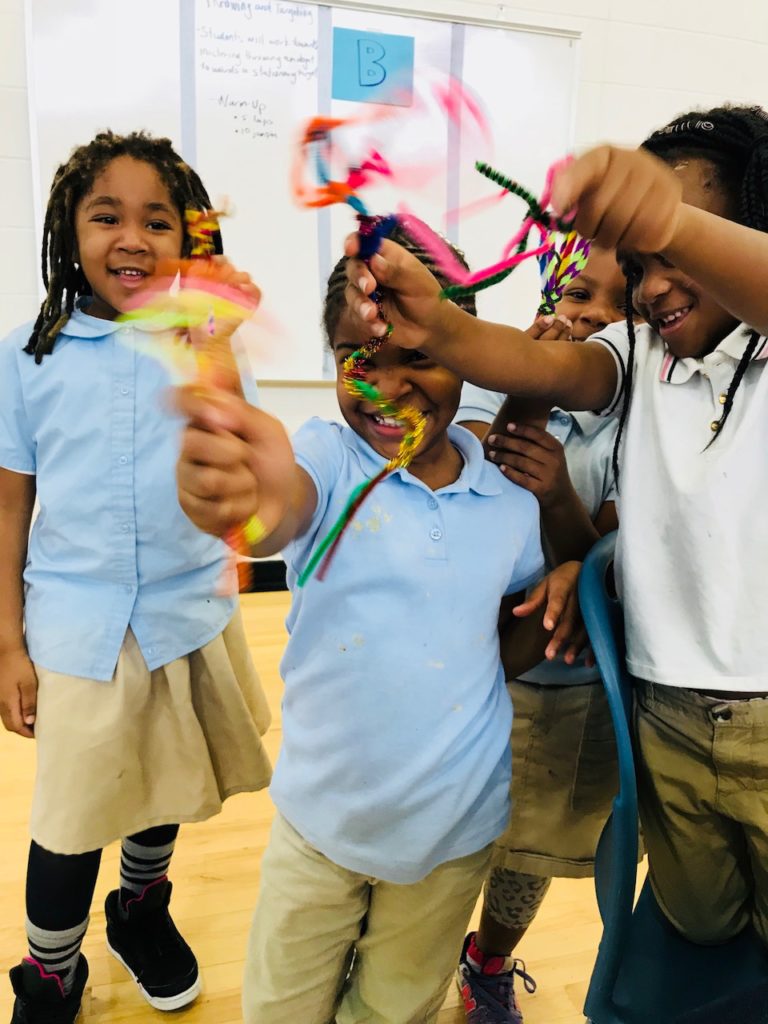
When I first had the idea to email the dean of my college to talk to him about why PSU should develop a minor in neuroscience, I felt silly– surely, he would never agree to meet with a random student to discuss how we should create a new program? Looking back on this time now, I never would have thought this idea would become a reality. Throughout this process, I’ve learned to pursue and advocate for things that I am passionate about. I learned to identify gaps in my community and devise strategies to address them. I learned to take a chance and to simply try.
I learned that my voice matters.
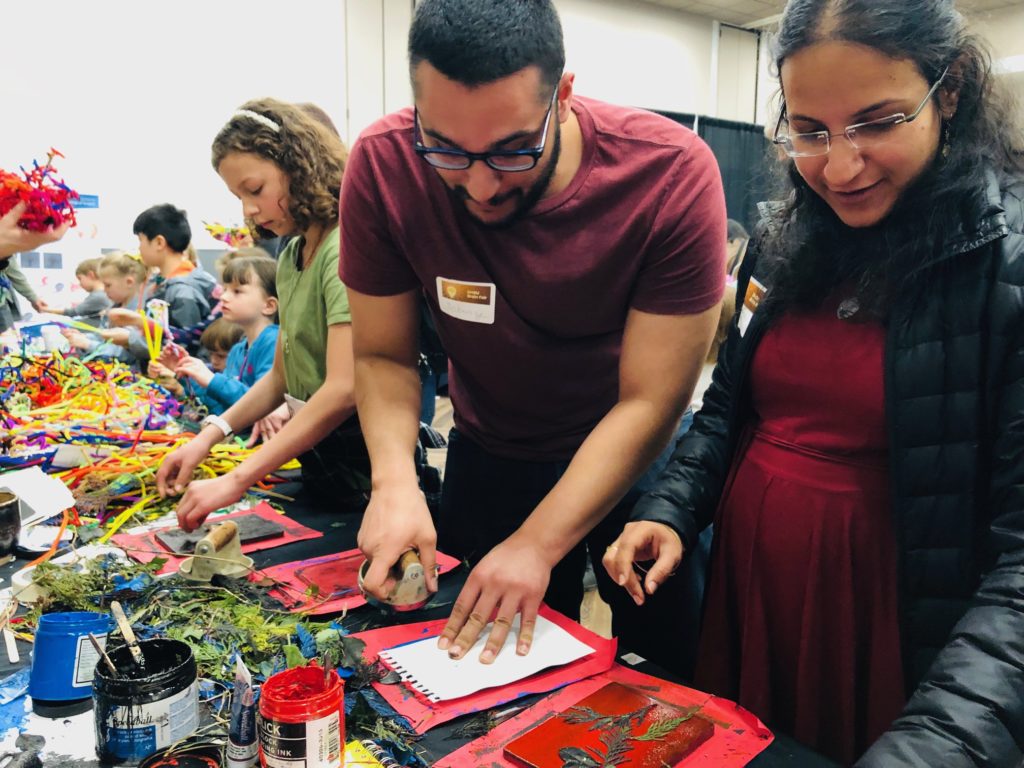
And to any students reading this, your voice matters too!
